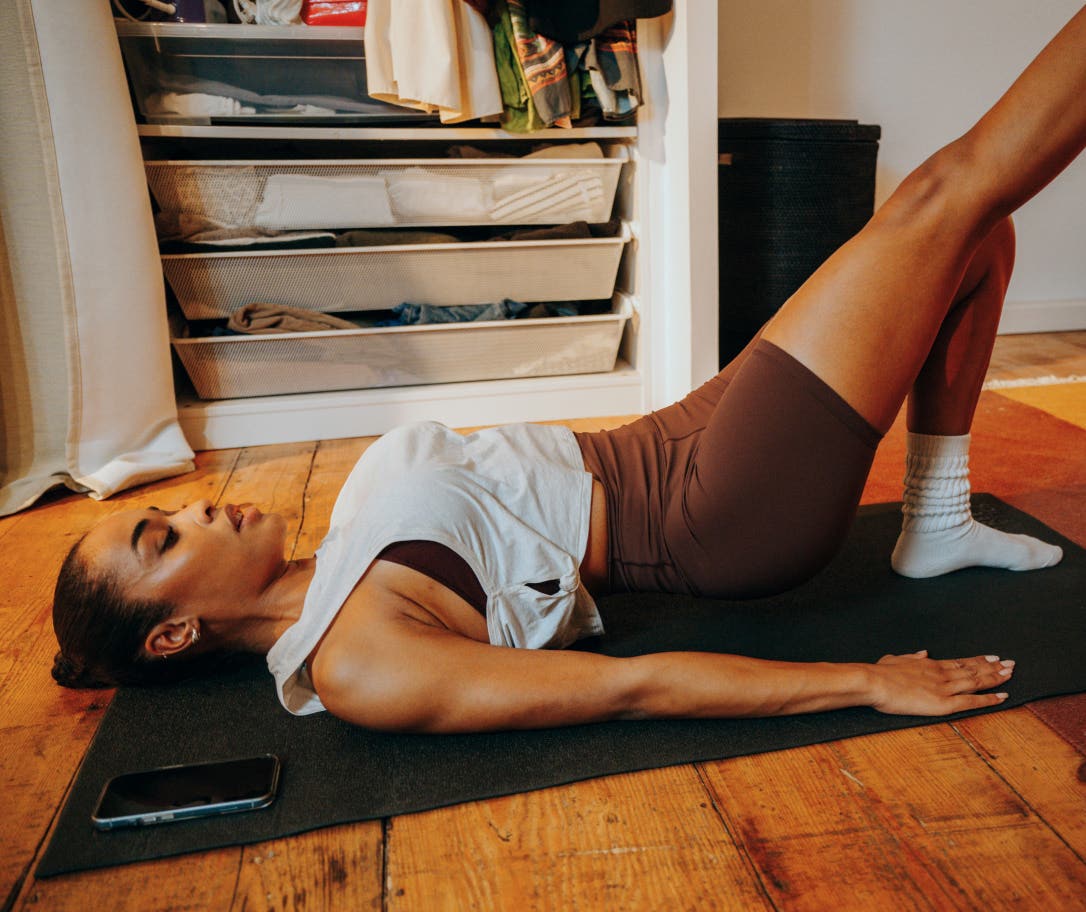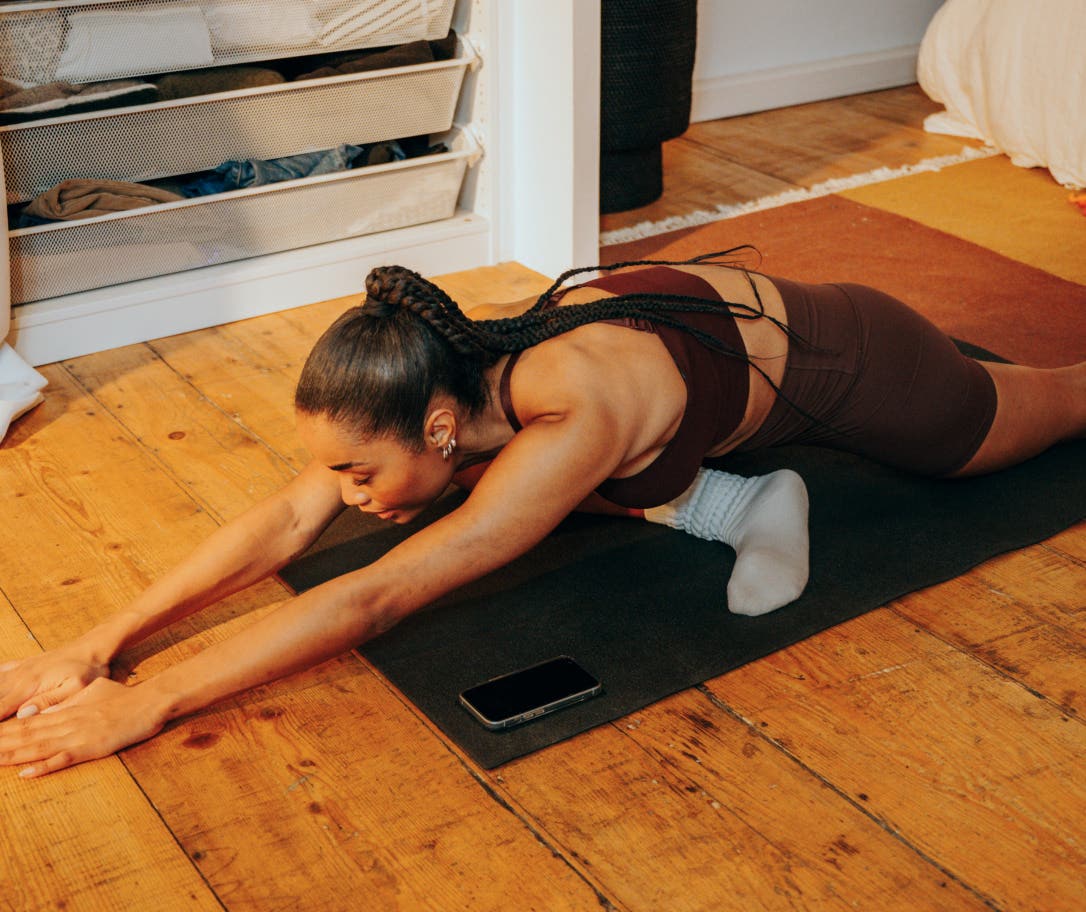Sleep is an important time during which numerous vital biological processes take place, including recovery, repair, and communication between the body and brain. However, despite the fact that we all require sleep, its true biological purpose remains unknown. 1
For athletes, high-quality sleep is vital for preventing injuries, improving sports performance, and enhancing mental clarity to give them the competitive edge over their opponents.
Here, we explore the different stages of sleep and their impact on physical and mental well-being for athletes. We’ll also look at how too little or too much sleep can impair your performance and whether there’s an optimal number of hours needed to perform at your best.
The science behind sleep stages
In the first part of our series about sleep, we explored how exercise impacts sleep. In addition to regularity and quality, the different sleep stages and the total amount of sleep also play crucial roles, if not the most important ones.
What we do know is that sleep happens in distinct stages and repeats in sleep cycles:

The most well-known and important stages of sleep are deep sleep and REM sleep, the latter named for the observation of extremely rapid eye movements (“Rapid Eye Movement: REM”). Sleep stages repeat themselves during the course of a night, but vary in length and frequency within the total sleep time. These stages are measured and classified based on the frequency of brain waves.2
Deep sleep - the energizer
Sleep occurs in cycles, usually in the following order: N1, N2, N3, N2, and REM, with each complete cycle lasting approximately 90 to 110 minutes. The N2 and N3 stages are the deeper sleep stages and are part of the non-REM sleep phase. Most people spend around 45% of their sleep in the N2 stage and roughly 25% in N3.2
Deep sleep, also known as slow-wave sleep, is particularly important for the regeneration, repair, and formation of new tissue – especially muscle tissue and the immune system. During this stage, blood flow is directed towards our brain, and the pituitary gland releases growth hormone to stimulate tissue growth and muscle recovery. 3
During the deep sleep stage, growth processes and the physical processing of training stimuli – key for muscle development and fat reduction – run at maximum speed. Research has found that poor-quality sleep, including sleep deprivation, particularly during this phase, can cause decreased skeletal muscle mass and increased fat mass.4
REM sleep - the mental coach
REM sleep, on the other hand, is the restorative phase for the mind and is critical for cognitive recovery, memory consolidation, and skill learning. During this stage, the brain is highly active, metabolism increases by up to 20%,5 and both heart and breathing rates increase. This is also when vivid dreaming occurs.
Mental clarity and cognition are particularly important for athletic performance, and getting the right sleep can give you a competitive advantage. For example, in basketball players, sleeping more hours per night resulted in increased shooting accuracy and improved physical and mental well-being during training and matches.6

When is the best time to wake up?
Ideally, it’s best to wake up during the transition from REM sleep to light sleep, or N1, because this is when you are most likely to feel rested and less disoriented. Since sleep cycles last around 90 minutes, timing your wake-up during lighter sleep stages – or using a smart alarm that monitors sleep patterns – can help improve your sleep quality and make it easier to fall asleep the next night.
Waking during deep sleep often causes sleep inertia, a state of disorientation, impaired cognitive function, and a general feeling of grogginess.7 Yet, exercise may reduce sleep inertia by stimulating key physiological processes in the body and brain when you wake.9
Waking during REM sleep may have similar effects because psychological recovery is incomplete. However, because hormonal activity during the morning REM stages closely resembles the waking stage, waking up from this sleep stage tends to feel much easier.
A persistent lack of REM stage sleep can lead to irritability, difficulty concentrating, and increased feeling of hunger and aggressiveness.
Is more sleep always better?
No, more sleep isn’t always better. 10 It can even signal an underlying health issue or be associated with health problems. For example, regularly sleeping for more than 10 hours a day has been linked to higher rates of depression and increased body mass index (BMI).11
This is thought to be caused by the permanently elevated levels of the sleep hormone melatonin. Over the long term, hormonal imbalances can disrupt the body’s overall hormone regulation. Permanently higher melatonin levels are also the reason why people who sleep for extended periods still feel, ironically, constantly tired and low energy.
On the other hand, not getting adequate sleep is also problematic. Sleep deprivation is linked to increased risk of chronic illness and can also have a detrimental impact on athletic performance and recovery.
Some studies show that adolescent athletes who consistently get less than 8 hours of sleep a night are more likely to be injured compared to those who get at least 8 hours.12 So, getting the balance right is key.
And it’s not just the number of hours of sleep you get that matters – sleep quality is also critical for how you feel and perform the next day. If you wake often during the night or need to get up to visit the bathroom, this can impact your sleep quality.

So, how much sleep do you really need?
There’s no one-size-fits-all amount when it comes to sleep. The length of sleep cycles varies from person to person and depends on factors like your sleep routine and the quality, which is why there is no generally accepted optimum amount of sleep.
Nevertheless, for most people, aiming for 6 to 9 hours per night of good-quality sleep is ideal. If you’re within this sleep range and still wake up feeling tired, try adjusting your sleep duration slightly or improving your sleep environment and bedtime habits.
Tools like sleep apps or body trackers can help you monitor your sleep patterns and fine-tune what works best for you.
Of course, not everyone can stick to the optimum sleep duration every night. And one night of poor sleep isn’t too serious because our body can easily compensate for small sleep infractions.
Too little or too much sleep over an extended period of time, however, is definitely counterproductive and affects training, performance, concentration, and overall health.
Let’s recap
Prioritize healthy sleep habits and create a sleep environment that supports your sleep. Treat your rest like your training and remember that some quality R&R helps you show up to your next session refreshed, focused, and ready to crush it on the mat.
Sources
[1] National Institute of Health. (2025). Brain Basics: Understanding Sleep.
[2] Patel AK, Reddy V, Shumway KR, et al. Physiology, Sleep Stages. [Updated 2024 Jan 26]. In: StatPearls [Internet]. Treasure Island (FL): StatPearls Publishing; 2025 Jan-.
[3] Harvard Health Publishing. (2025). How sleep boosts your energy.
[4] Song, J., Park, S. J., Choi, S., Han, M., Cho, Y., Oh, Y. H., & Park, S. M. (2023). Effect of changes in sleeping behavior on skeletal muscle and fat mass: a retrospective cohort study. BMC public health, 23(1), 1879.
[5] Peever, J., & Fuller, P. M. (2017). The Biology of REM Sleep. Current biology : CB, 27(22), R1237–R1248.
[6] Mah, C. D., Mah, K. E., Kezirian, E. J., & Dement, W. C. (2011). The effects of sleep extension on the athletic performance of collegiate basketball players. Sleep, 34(7), 943–950.
[7] Hilditch, C. J., & McHill, A. W. (2019). Sleep inertia: current insights. Nature and science of sleep, 11, 155–165.
[8] Burke, T. M., Scheer, F. A. J. L., Ronda, J. M., Czeisler, C. A., & Wright, K. P., Jr (2015). Sleep inertia, sleep homeostatic and circadian influences on higher-order cognitive functions. Journal of sleep research, 24(4), 364–371.
[9] Kovac, K., Vincent, G. E., Paterson, J. L., Reynolds, A., Aisbett, B., Hilditch, C. J., & Ferguson, S. A. (2021). The impact of a short burst of exercise on sleep inertia. Physiology & behavior, 242, 113617.
[10] NIH. (2021). Good Sleep for Good Health.
[11] Léger, D., Beck, F., Richard, J. B., Sauvet, F., & Faraut, B. (2014). The risks of sleeping "too much". Survey of a National Representative Sample of 24671 adults (INPES health barometer). PloS one, 9(9), e106950.
[12] Milewski, M. D., Skaggs, D. L., Bishop, G. A., Pace, J. L., Ibrahim, D. A., Wren, T. A., & Barzdukas, A. (2014). Chronic lack of sleep is associated with increased sports injuries in adolescent athletes. Journal of pediatric orthopedics, 34(2), 129–133.